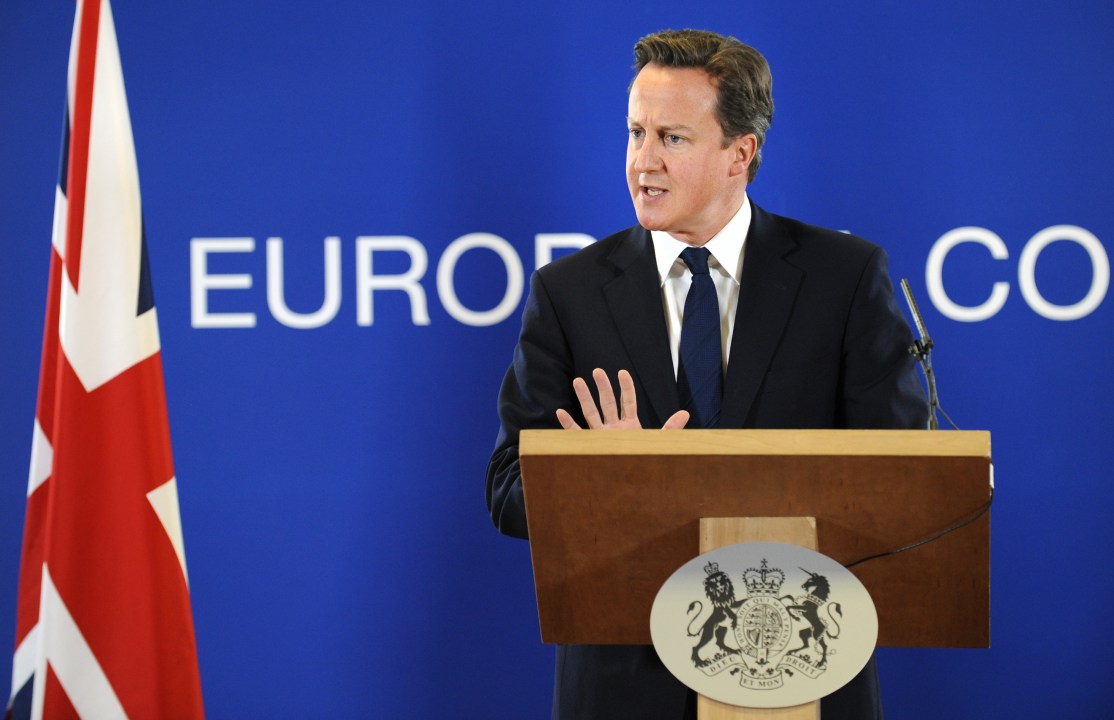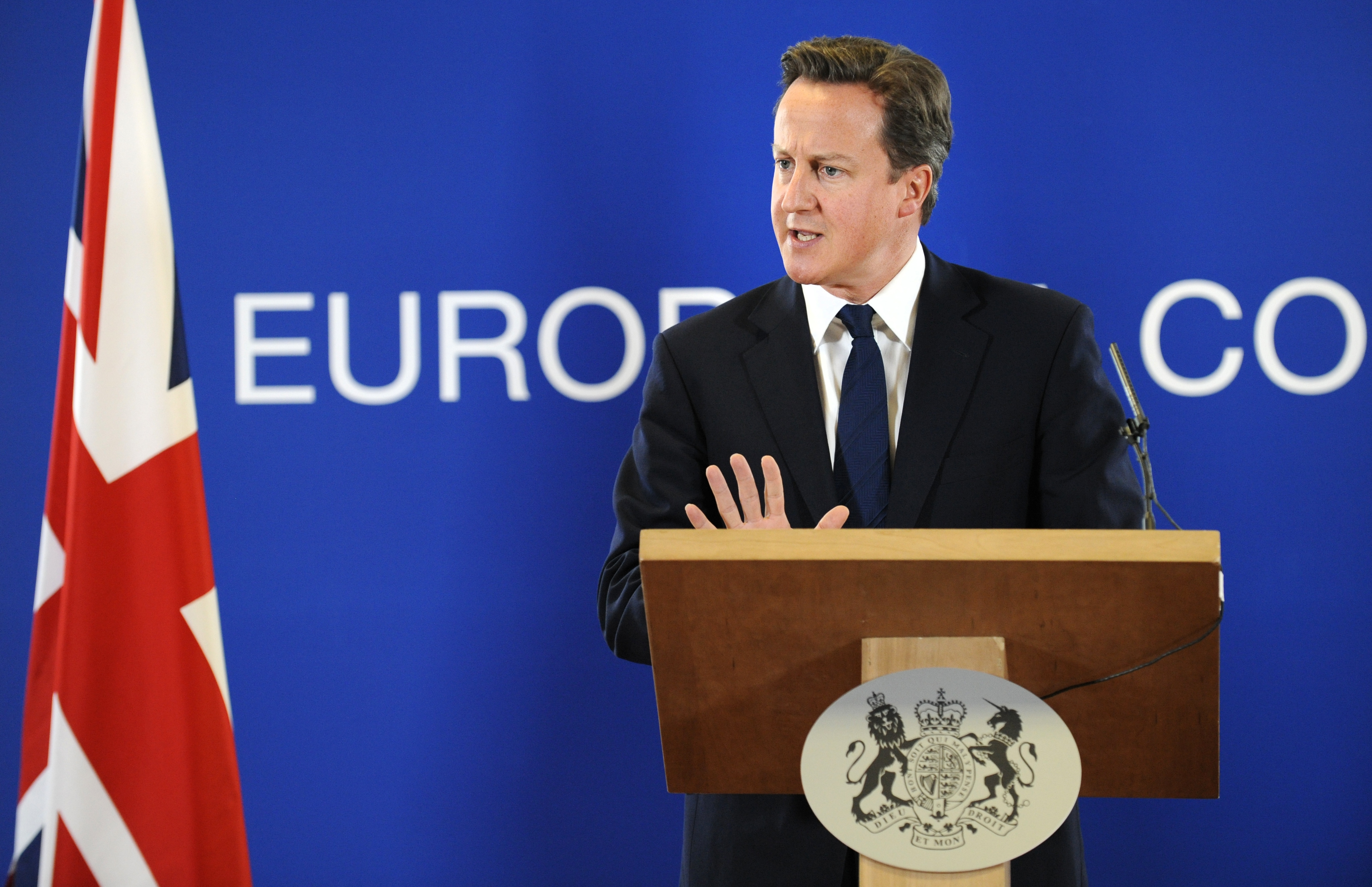 And the word of the weekend is ‘repatriate’. Not only do we have yet another poll showing that the British public, when asked, would prefer to tug
powers back from Brussels, but there’s also this eyecatching
story in the Daily Telegraph. No.10, we’re told, is pushing Whitehall departments to determine just exactly where Europe’s influence could be counteracted. There is also a backbench group of
Tory MPs providing covering ideas.
And the word of the weekend is ‘repatriate’. Not only do we have yet another poll showing that the British public, when asked, would prefer to tug
powers back from Brussels, but there’s also this eyecatching
story in the Daily Telegraph. No.10, we’re told, is pushing Whitehall departments to determine just exactly where Europe’s influence could be counteracted. There is also a backbench group of
Tory MPs providing covering ideas.
So why hasn’t this been happening before now, particularly given how frustrated those around David Cameron have become with the constant torrent of EU directives? Part of the answer is that the events of the past week have made all this more urgent. But part of it is that, actually, this work has already been going on in Whitehall. As the Telegraph puts it, ‘the review draws on previously secret Whitehall reports drawn up before the last election as Civil Service “scenario-planning” for a possible Conservative government’. These reports then dropped behind departments’ filing cabinets, which might explain why so many ministers have stumbled when asked: which powers, exactly?
The main question, of course, is whether this review will come to anything, and, if so, when? In theory, the Prime Minister has an opportunity to deploy its preliminary recommendations when European leaders start talking treaties next month. But, in practice, he will face resistance from the Lib Dems, from civil servants and from the EU itself. Much will hinge on the extent of any EU treaty changes, and on Cameron’s determination to perform feats that would be easier under a Conserative majority government.
In the meantime, if CoffeeHousers have any thoughts about which powers can be repatriated from Europe, then do make them known in the comments section below. We’ll stump up some bottles of Pol Roger for the best ideas.
P.S. While we’re talking Pol Roger, it’s probably a good time to announce the winner of this recent Coffee House competition. We asked CoffeeHousers to sell Osborne’s
growth strategy, which David Cowan did, by email, with the text we’ve reproduced below. A bottle of bubbly is on its way to him.
George Osborne is a man with a plan. He is also a Conservative Chancellor in a Coalition government at a time of financial turmoil not seen since the 1930s. However, he is also a shrewd political operator who managed to use his inheritance tax pledge to call Gordon Brown’s bluff in 2007 and opposed Alastair Darling’s NIC increase in order to give the Conservatives some momentum in 2010. George Osborne has managed to construct a growth strategy which accommodates the Liberal Democrats, includes political electioneering for a Conservative majority in 2015 and will hopefully rebuild the British economy. The absolute bedrock of his growth strategy is to keep long-term interest rates low. That is why he is trying to eliminate the structural deficit by 2015 in a way which is fiscally responsible, i.e. through public spending cuts and modest tax increases. Keeping interest rates down will ensure that people can still borrow at German style costs whilst the country has a Greek style debt, and so the markets will maintain their confidence in Britain as a safe haven. Dovetailing with his efforts to keep long-term interest rates low George Osborne has been trying to get credit flowing back into the British economy. The Bank of England’s second round of quantitative easing and holding the bank rate at 0.5% represent a large part of this. However, George Osborne has also managed to contribute by pulling off the major Project Merlin deal with the banks in order to get them lending again. However, it is not just the deficit which George Osborne has inherited from Labour. After 13 years of Labour misrule Britain has fallen to 22nd in the world ranking [business.timesonline.co.uk/tol/business/economics/article7132864.ece] of most competitive countries. The Chancellor is now on a crusade to put Britain back at the front of the pack. This has led to serious efforts at supply side reforms which include cutting corporation tax to the lowest rate in the OECD, introducing the zero-rating of business rates in 21 new enterprise zones and simplifying the longest tax code in the civilised world. The Coalition has also introduced a new ‘Employer’s Charter’ as part of a Whitehall review of employment legislation, the ‘one in, one out’ rule is in place, small businesses are being exempted from domestic regulations for the next three years, and our antiquated planning system is being radically reformed. Another part of this crusade to create a new ‘enterprise culture’ is to regenerate Britain’s ailing infrastructure and maintain the capital investment which will help sustain small businesses and create jobs. Obvious examples include High Speed Rail 2, Crossrail, and the extension of the broadband network, all of which will help to integrate all of Britain’s regions into a more balanced economy. Human capital is also being nurtured by the 500,000 new apprenticeships, new vocational training centres, more schools and greater science development. George Osborne’s growth strategy is also ensuring that it is the least well-off who have more money in their pockets and that the rich pay their fair share during this ‘age of austerity’. That is why the personal allowance is being increased, council tax is being frozen again and fuel duty was cut, while the 50p tax rate is staying, capital gains tax was increased and new taxes have been slapped onto big banks and oil companies. As for the controversial VAT increase, it is a necessary measure which will raise more revenue, at a minimal cost to the economy, for paying back the debt and protecting the schools budget and real terms increase in NHS spending. George Osborne’s strategy for growth is a clear and coherent set of policies based on the need to encourage a new competitive ‘enterprise culture’ by providing low long-term interest rates and cheap credit, a vibrant national infrastructure, lower business taxes and less red tape. However, the Liberal Democrats have placed serious restraints on the options available to him, but if he successfully manages to deliver a healthy economic recovery in 2015 then he will be able to grant the generous tax cuts which many are calling out for now and gain all the credit in the process. This is a pragmatic and solidly fiscal conservative strategy which will pay off if George Osborne stays the course amidst the current financial storm and if he is very very lucky.







Comments